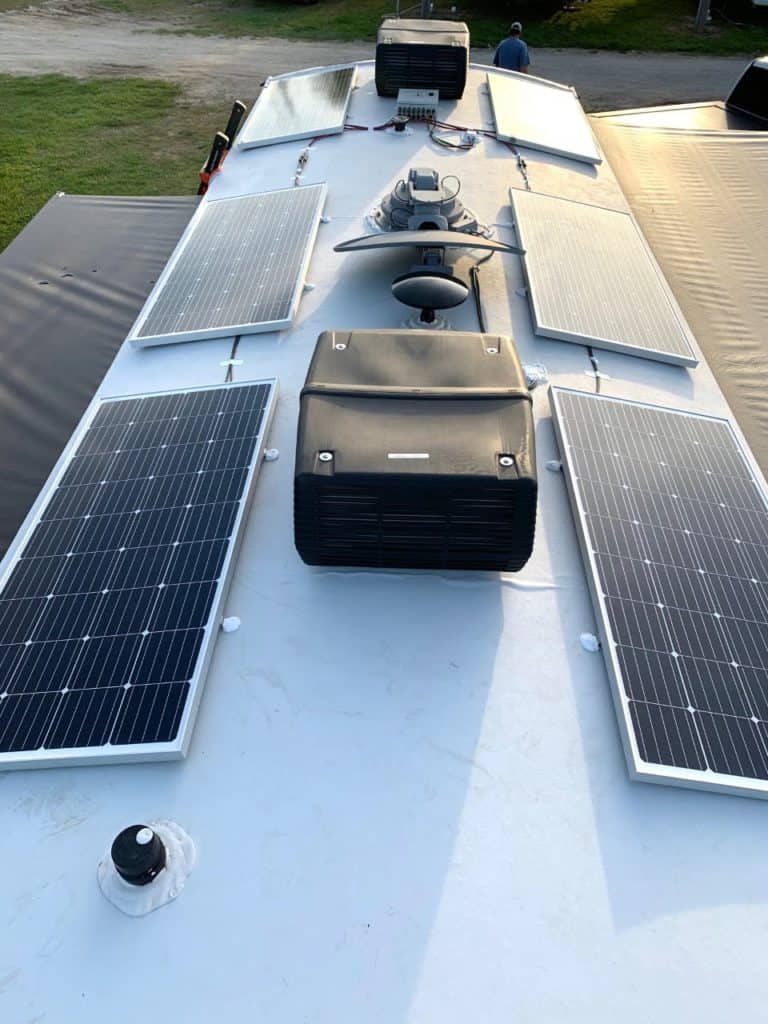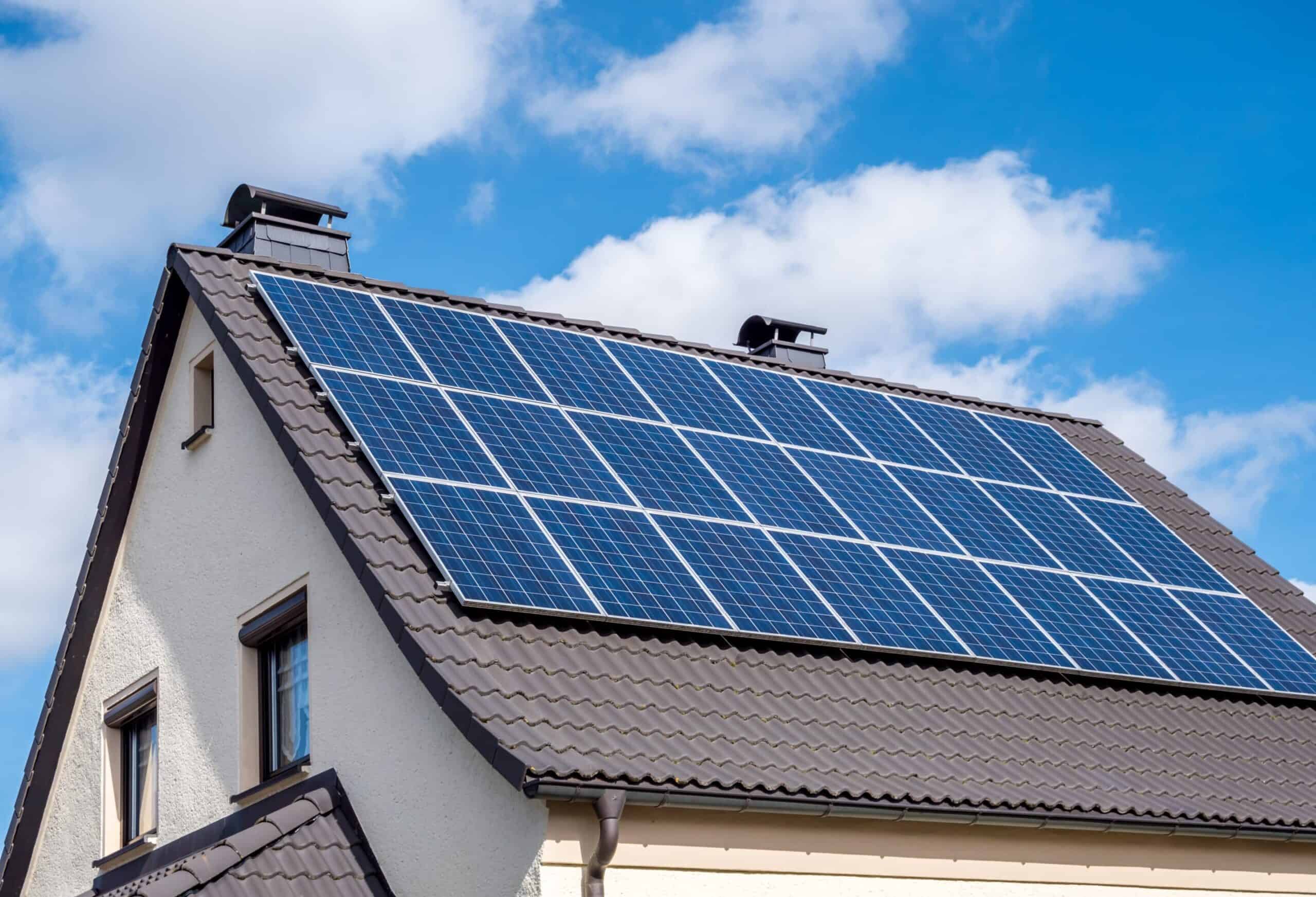Choosing the Best Solar Company for Your Business Project
Recognizing the Advantages of Solar Panels: Why They Are a Smart Financial investment
Solar panels present an engaging case for home owners seeking economic and ecological benefits. They can substantially minimize energy costs while enhancing residential or commercial property worth. Government motivations further enhance their allure, making initial financial investments extra convenient. As global energy worries grow, the modification towards eco-friendly sources ends up being increasingly significant. Comprehending these advantages is crucial for any individual contemplating this shift. What aspects should be thought about before making such a substantial commitment?
Financial Cost Savings Through Minimized Energy Expenses
As property owners progressively look for ways to minimize expenditures, the financial benefits of solar panels end up being apparent through minimized energy costs. By utilizing the sun's power, residential solar systems generate electrical power that can substantially reduce and even remove month-to-month utility expenses. This decrease is specifically useful as electricity prices remain to climb, permitting home owners to secure lower energy prices.

In several areas, property owners can additionally anticipate a boost in residential or commercial property value, as potential purchasers usually see solar panels as a desirable feature. Ultimately, solar panels stand for a critical financial decision, providing both prompt financial savings and long-term economic benefits.
Government Rewards and Tax Obligation Benefits
Federal government rewards and tax obligation benefits play a crucial function in the fostering of photovoltaic panels. Federal tax obligation credit histories and various state motivation programs greatly minimize the upfront costs for services and house owners. These financial backing not just encourage financial investment in eco-friendly energy however likewise add to long-lasting savings.

Federal Tax Credits
Federal tax credit histories function as a substantial financial incentive for home owners and businesses taking into consideration the installation of photovoltaic panels. Solar Installation. These credit histories, largely provided via the federal Investment Tax Credit history (ITC), enable people to subtract a percent of the price of their solar power system from their federal tax obligations. As of 2023, the ITC provides a 30% credit history, making solar power a lot more appealing and inexpensive. This tax advantage not just minimizes the upfront economic worry but additionally speeds up the roi. By taking advantage of federal tax obligation credit ratings, home proprietors can improve their total financial savings, making solar power systems an economically smart option. Such incentives play an important function in advertising sustainable power adoption throughout the nation
State Incentives Programs
Along with government tax credit reports, numerous states use their own incentive programs targeted at encouraging the adoption of solar power. These programs can take numerous forms, consisting of refunds, performance-based incentives, and tax credit scores that even more decrease the general cost of photovoltaic panel installment. States such as The Golden State, New York City, and Massachusetts have actually executed durable programs made to improve availability to solar modern technology. In addition, some states provide web metering policies, allowing house owners to obtain credit histories for excess energy created by their solar systems. These rewards not only advertise ecological sustainability but also make solar energy a lot more economically viable for customers. Understanding and leveraging these state incentives can significantly improve the return on investment for solar power systems.
Rise in Residential Or Commercial Property Value
Solar panels not just contribute to ecological sustainability but likewise enhance the worth of homes. Homebuyers significantly seek energy-efficient features, making solar setups an appealing selling factor. Research study shows that homes outfitted with solar panels can regulate greater sale costs compared to comparable residential or commercial properties without them. This trend is driven by rising energy prices and growing understanding of renewable resource benefits.
Possible customers typically view solar-equipped homes as even more modern-day and enticing, translating right into quicker sales and lowered time on the market. The first financial investment in solar technology can produce considerable returns through increased building worth, frequently recouping much of the installation cost at resale. In regions with desirable solar rewards, the worth increase can be even much more obvious. In general, solar panels represent not only a commitment to energy self-reliance yet also a strategic financial choice for home owners looking to boost their residential or commercial property's marketability.
Ecological Influence and Sustainability
The assimilation of solar panels into homes greatly adds to a decrease in carbon impacts and advertises environmental sustainability. By utilizing energy from the sunlight, solar panels produce electricity without discharging dangerous greenhouse gases, markedly decreasing reliance on fossil gas. This change to eco-friendly power resources aids reduce the unfavorable effects of environment adjustment, shielding environments and biodiversity.
Additionally, solar energy systems require marginal water for operation compared to standard power generation methods, which typically diminish beneficial water sources. The long check life of photovoltaic panels, usually lasting 25 years or more, even more stresses their sustainability, as they create tidy energy throughout their life-span with minimal ecological effect.
Furthermore, the manufacturing and installation of solar panels are progressively becoming my review here more environment-friendly, using recyclable materials and energy-efficient processes. On the whole, the fostering of solar modern technology not only fosters a cleaner atmosphere however additionally encourages a lasting future for generations to come.
Energy Freedom and Protection
While lots of countries face varying energy costs and geopolitical stress, adopting solar panels can significantly enhance energy independence and safety and security. By using solar energy, countries lower their dependence on imported fossil fuels, which can be based on unpredictable market shifts and political instability. This shift not only supports energy expenses but additionally promotes self-sufficiency, enabling countries to create their own clean energy.
Furthermore, solar panels can be deployed at different ranges, from specific homes to big solar farms, enabling localized power production. This decentralization decreases vulnerability to supply chain disturbances and improves resilience during situations. As companies and governments purchase solar modern technology, they produce jobs and promote economic growth, reinforcing power stability. Additionally, making use of solar energy adds to a diversified energy profile, reinforcing national safety by lowering dependence on single resources of power, eventually leading the way for an extra secure and lasting power future.
Low Maintenance and Longevity of Solar Panels
One notable benefit of solar panels is their reduced maintenance demands and outstanding longevity. Once mounted, solar panels normally need minimal maintenance, primarily limited to routine cleaning to eliminate dust and particles that may impact efficiency. Unlike standard power systems, there are no relocating parts in solar panels, which lowers the chance of mechanical failures and the need for constant repairs.
Most solar panels come with warranties ranging from 20 to 25 years, mirroring their sturdiness and lasting efficiency. Several makers assert that panels can remain to create power properly for three decades or even more, making them an audio financial investment for home owners and businesses alike. This long life not just assures long term power cost savings but also contributes to a sustainable energy future. The mix of low maintenance and a lengthy life expectancy makes solar panels an attractive option for those seeking trustworthy energy services.
Technological Developments and Performance Improvements
Current technological developments in solar panels have substantially improved power conversion rates, making solar power extra reliable and available. Innovations in solar materials have resulted in lighter, more resilient panels that can capture sunshine a lot more efficiently. Additionally, the assimilation of clever grid modern technology improves power management, optimizing the use of solar energy in modern energy systems.
Improved Energy Conversion Rates
Technical developments in solar panel style have actually substantially improved energy conversion rates, making solar power a more viable option for services and consumers alike. Improvements in solar battery technology, such as the advancement of monocrystalline and polycrystalline panels, have resulted in greater effectiveness levels, allowing more sunlight to be changed into useful electricity. Furthermore, technologies like bifacial panels catch sunlight from both sides, additionally enhancing energy output. Improved production processes have actually likewise added to lowered manufacturing expenses while keeping high performance. Because of this, the roi for solar power systems has boosted, motivating bigger adoption. These advancements not only assure significant cost savings but additionally support sustainability objectives, enhancing the allure of solar energy in today's energy landscape.
Ingenious Solar Materials
The advancement of solar modern technology proceeds with the introduction of ingenious products that improve effectiveness and efficiency. Recent innovations consist of the advancement of perovskite solar batteries, which use greater conversion prices and reduced manufacturing prices contrasted to standard silicon-based cells. These products are flexible and light-weight, permitting diverse applications, such as combination right into building materials. Furthermore, bifacial have a peek here photovoltaic panels, which capture sunshine from both sides, are getting traction, further increasing energy output. Nanotechnology is also being made use of to produce finishes that enhance light absorption and lower reflection. Jointly, these ingenious products not only add to better power effectiveness however likewise lead the way for more functional solar applications, making solar power a much more feasible option for businesses and customers alike.
Smart Grid Combination
As solar power systems become significantly common, their combination with smart grid modern technology is changing power administration and distribution. Smart grids boost the efficiency of solar panels by optimizing power flow and making it possible for real-time data evaluation. This innovation enables better energy storage space services, ensuring that excess solar power can be stored and utilized when need peaks. Furthermore, smart grids promote the assimilation of different renewable resource resources, developing a much more versatile and resilient power system. By making use of advanced interaction and automation technologies, home owners and utilities can check power intake patterns, leading to considerable expense financial savings and reduced carbon footprints. Eventually, smart grid combination not just boosts the performance of solar panels yet likewise supports a sustainable energy future.
Frequently Asked Inquiries
How Do Solar Panels Work to Produce Electrical Energy?
Solar panels create power by transforming sunlight right into straight existing (DC) using photovoltaic or pv cells. An inverter then converts this DC right into alternating present (AIR CONDITIONER), which can be utilized to power homes and businesses.
What Is the Average Lifespan of Solar Panels?
The typical lifespan of solar panels typically ranges in between 25 to three decades. Lots of panels proceed to operate past this timeframe, often experiencing a gradual decline in performance instead than full failing.
Can Solar Panels Be Set Up on Any Type Of Kind of Roof covering?
Solar panels can be set up on many sorts of roofs, consisting of asphalt shingles, metal, and flat surface areas. The roof's positioning, angle, and architectural integrity considerably affect the installation process and general effectiveness.
What Happens if My Solar Panels Create Excess Energy?
If solar panels create excess energy, home owners can commonly offer it back to the grid, profiting from net metering. Solar Panels. This process allows them to obtain credit scores or economic payment for the excess power produced
Are There Funding Options Available for Photovoltaic Panel Installation?
Numerous financing choices exist for photovoltaic panel setup, including loans, leases, and power purchase contracts. These alternatives allow property owners to handle upfront costs while taking advantage of sustainable energy sources and possible long-term financial savings on utility costs.
While numerous countries grapple with varying power prices and geopolitical tensions, adopting solar panels can substantially improve power independence and security. Solar panels can be deployed at numerous ranges, from private homes to big solar ranches, permitting for local power production. Current technological developments in solar panels have actually substantially enhanced energy conversion prices, making solar energy much more obtainable and efficient. Technological innovations in solar panel style have substantially improved power conversion prices, making solar power a more viable choice for customers and businesses alike. As solar energy systems come to be increasingly common, their assimilation with clever grid technology is revolutionizing energy administration and distribution.